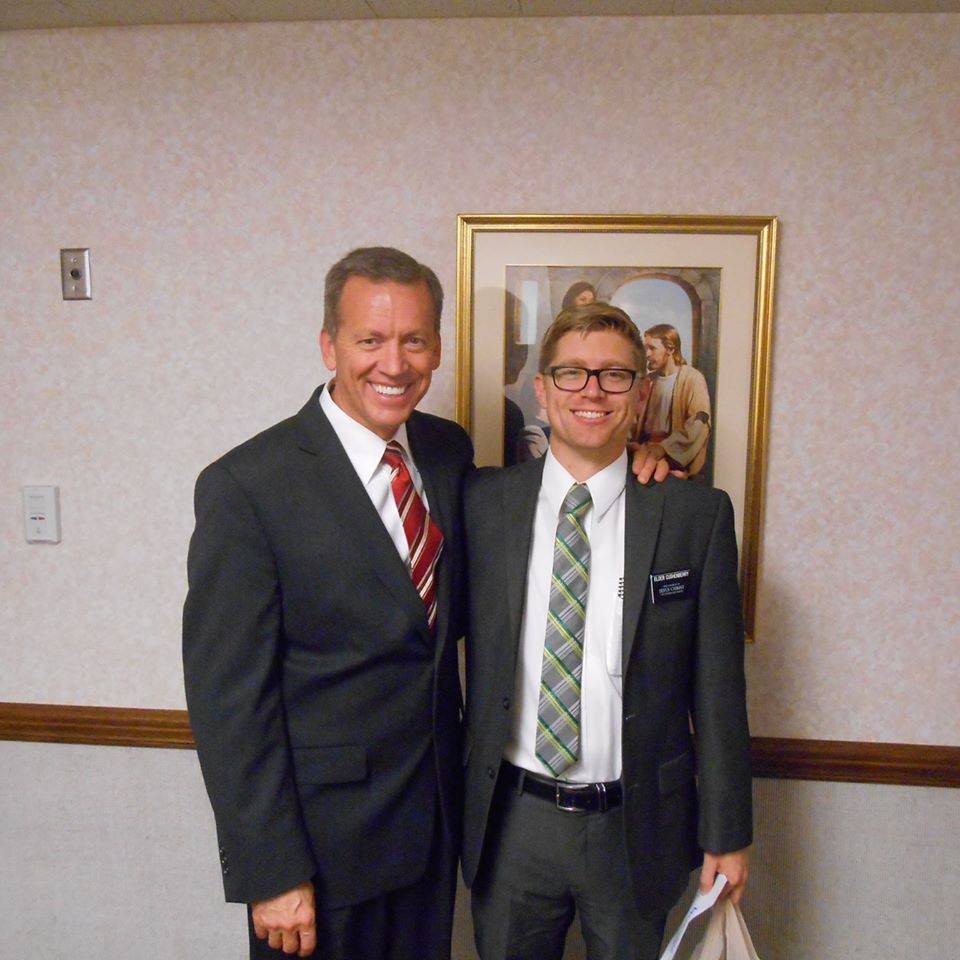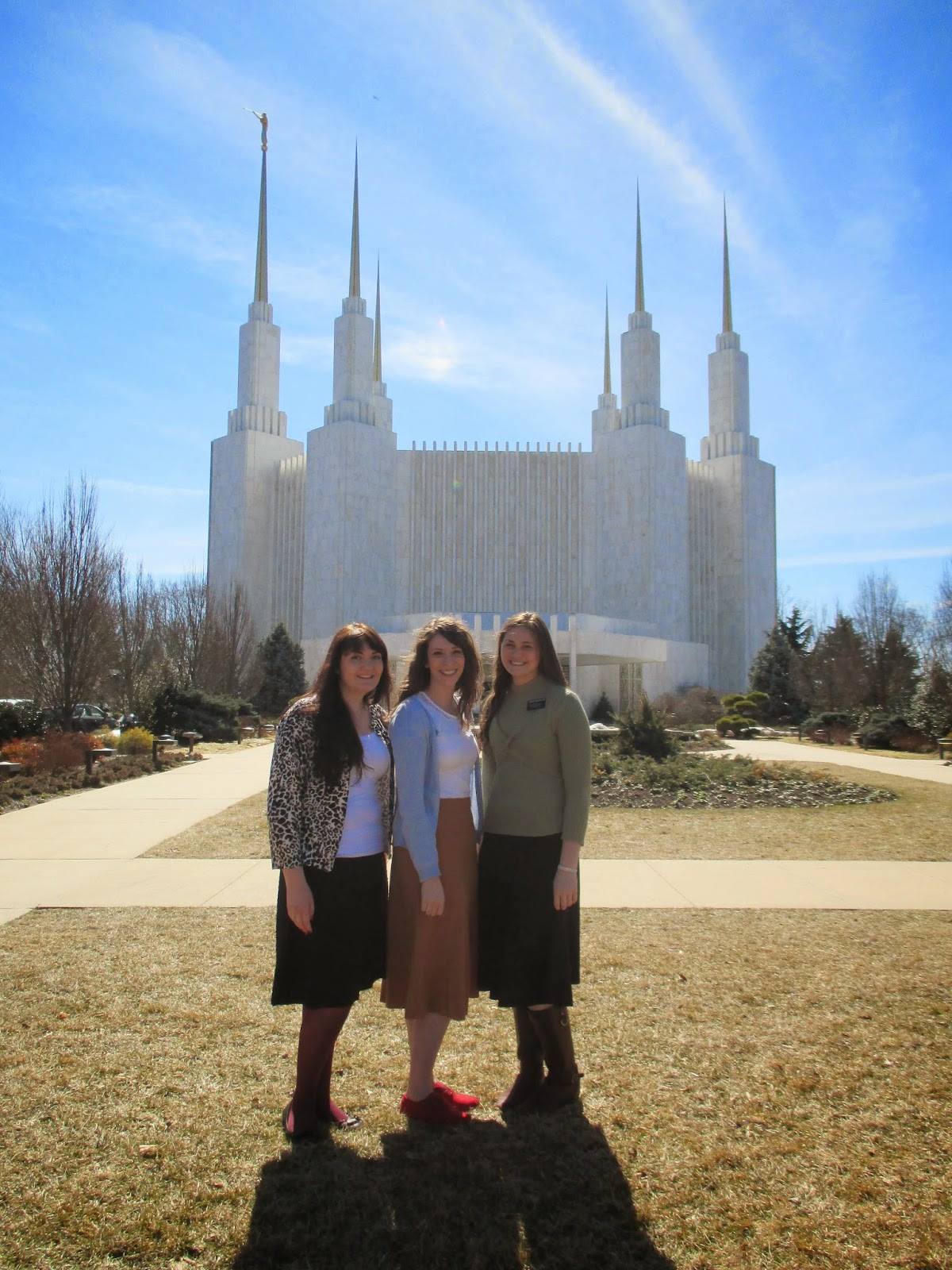
Patrick Cushenberry said he never wanted serve a mission for The Church of Jesus Christ of Latter-day Saints. His professional go-kart career kept him busy at age 19 — the traditional mission service age — and he thought his opportunity to serve had passed. Six years later, he noticed his life wasn’t headed in the direction he wanted and decided to change.
“I went from that to saying, ‘OK, well I can either make a decision and a change, and try and change me, or I can make a decision and let the Lord change me,’ and that was ultimately what prevailed. I had already seen what I could do,” said Cushenberry, who served in the New York Utica Mission at 25.
Young adults in the church commonly leave for their missions at age 18 or 19, especially since a lower missionary age change was announced by LDS Church President Thomas S. Monson in October 2012. But for some missionaries, like Cushenberry, the call to serve comes past the traditional ages of 18 or 19.

Hailey Maire, who embarked to serve her mission in Washington, D.C., at 25, was encouraged by family members to consider a mission. She had been dating around and working full-time at 21, and was previously engaged to be married at 23.
“When we broke up, the last thing he said was, ‘Well now you can go on a mission like other girlfriends I broke up with,'” Maire said.
Due to this reaction from her ex-fiance, Maire’s family refrained from putting any pressure on her to serve. Instead, they encouraged her to make the decision for herself.
She said one day she was talking with her dad around the time her brother was filling out his mission papers and “it just felt like it was the right thing to do.”
While Maire’s family did not pressure her to serve, she acknowledges she still felt a cultural expectation once she reached the age of eligibility.
“That push is there, I felt it when I was 21,” Maire said. “I’m a menace to society if I’m not on a mission or married.”
That cultural pressure is one of the factors that kept Cushenberry from leaving at 19. He decided to wait until he was ready, rather than go out with “blindfolded faith” because it was expected or assumed.
“That was one of the things I saw is that people went without fully acknowledging their choice to do so, and often, they would come home early,” Cushenberry said.
Utah-based therapist and licensed social worker Bobbie Pugh said a pressure exists for young adults to leave on their missions at 18 or 19.
“I think (the pressure) plays into their self-worth and self-value so if they’re not meeting the cultural norms or expectations, they feel that maybe they’re not a good enough member of the church or they’re not faithful enough, that sort of thing,” Pugh said.
Pugh encourages families and friends of these young adults to be more understanding and compassionate in order to alleviate that pressure.
“It’s easy to say, harder to do, because you have these cultural expectations. But just recognize that everybody’s journey is their own, especially spirituality and their faith. Just be supportive and loving, and compassionate,” Pugh advised.
Due to their ages, these returned missionaries encountered different life experiences than most before entering the mission field. They’ve lived on their own, worked full-time, and some have earned their degrees. Maire explained that leaving in her late 20s meant letting go of specific personal and career opportunities.
“I gained a lot more, but initially you feel like you’re giving up a lot more than the usual,” Maire said.
While giving up the professional obligations of adulthood can be difficult for young adults in their mid to late 20s, many say the spiritual outcomes are worth the sacrifice.
Tricia Dexter, who served in the Canada Vancouver Mission, submitted her papers at 29 and left for the MTC at 30.
Dexter was an inactive church member from the time she was a teenager until she was 27. Once she reactivated, she said she wished the years for serving a mission had not passed her by.
Her uncle encouraged her to pray about still serving a mission and wait for her answer while they were attending an LDS stake conference. She laughed because the idea seemed unbelievable as she was nearing 30. He continued to urge her to pray about it, and she received an answer to go.
Dexter admits she felt like she had a lot riding on her decision to leave. She had an apartment and professional career that she had to give up. But Dexter said her personal losses were made whole by the testimony she gained.
“I had to leave those things behind, but I think in addition to it, it gave me the opportunity to gain … a firmer foundation in my testimony,” Dexter said. “It was an incredible experience for me for sure.”




